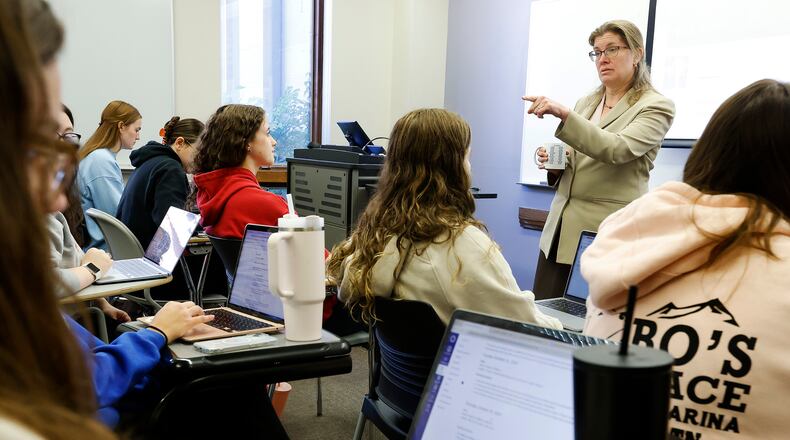Bennett said the grant will involve up to 12 congregations from multiple backgrounds in the region. In the beginning, the first few congregations will be familiar with Montessori religious education, such as Catechesis of the Good Shepherd and Godly Play.
“In the third year of the grant, we’ll be inviting some other congregations to the conversation, ones without that Montessorian background, who can learn from their predecessors and also try out some new things,” Bennett said. “And in the fifth year of the grant, I’ll be hosting a regional exhibition where anyone can come and see some of the ideas and celebrate worship opportunities for children with disabilities.”
Bennett said there are plans for a free workbook for people in the Miami Valley to use the ideas that came from the study.
Bennett said worship engages primarily sight and sound. It also requires people to sit still or behave in particular ways, she said, which could be difficult for those with ADHD or autism spectrum disorder. As someone who is hard of hearing herself, she said it can be difficult.
“So my question in this grant is, what happens if we provide ways for worship to be more present and available for children no matter their ability?” Bennett said.
She said initial research on these methods has been promising, but more is needed.
“There’s been some initial promising research that suggests these hands-on, experiential methods can be really beneficial for helping children develop a relationship with God,” Bennett said. “So we’re going to take the Montessorian wisdom of these congregations and use it to think more deeply about worship for children with multiple disabilities.”
The grant came from Lilly Endowment’s Nurturing Children Through Worship and Prayer Initiative, which helps Christian congregations engage children in meaningful intergenerational worship and prayer practices.
The University is one of 91 organizations funded through the latest round of the Lilly Foundation initiative, according to the university. The Lilly Foundation represent and serve congregations in a broad spectrum of Christian traditions, including Catholic, mainline Protestant, evangelical, Orthodox, Anabaptist and Pentecostal faith communities. Several organizations are rooted in Black Church and Hispanic and Asian American Christian traditions.
“These programs will help congregations give greater attention to children and how they can more intentionally nurture the faith of children, as well as adults, through worship and prayer,” said Christopher L. Coble, Lilly Endowment’s vice president for religion.
About the Author

